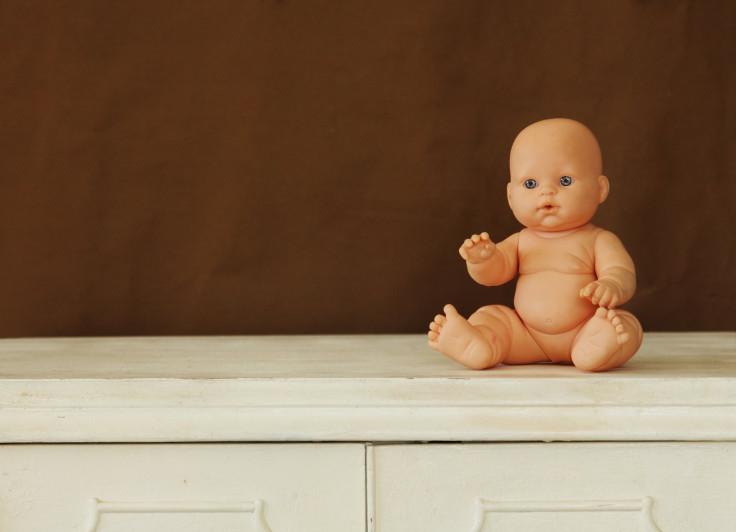Parenting Styles Can Be Predicted With Two Couples, One Bag Of Rice, For 5 Minutes

If only there were a way to predict what kind of parents you and your sweetheart will be before you actually have a child. Well, according to a recent study from Ohio State University, there is. Researchers found that the way that couples interact with a 7-pound rice-filled doll was extremely indicative of what kind of parents they will be. Looks like schools were on to something after all with those silly egg-baby projects.
Researchers were curious if parenting techniques between couples were established before the child was even born, an interesting concept that before now has never been proven. "Even though I believe that the co-parenting relationship begins to develop prior to a child's birth, I had to see it for myself to be convinced," Sarah Schoppe-Sullivan, one of the study authors and a professor of human sciences at the Ohio State University, told Time.
Using a mock child, which was actually pajamas filled with 7 pounds of rice and green fabric with an attached head, the researchers asked expectant couples to play house. The parents proceeded to interact with the bag of rice as researchers recorded, taking careful notes of how the couples supported one another. Nine months later, when the actual child was born, the researchers once again observed the parents' behavior when interacting with the child and, surprisingly, there were quite a few similarities.
Overall, researchers found that parents who were critical of each other’s treatment of the bag of rice were also critical of each other’s treatment of the live child. For example, spouses who said things such as “You’re not going to hold the real baby like that are you?” continued to be critical of their partner even after the real baby was born. Also, parents who shared time with the doll ended up sharing responsibility for taking care of the real baby. “It still amazes me that five minutes of play with a doll can predict co-parenting behavior with the real infant one year later," added Schoppe-Sullivan. What was even more surprising was that these parenting patterns were not at all reflective of marital happiness. For example, there was no direct pattern between parenting compatibility and marriage satisfaction.
Of course, there are rather large discrepancies in the study, such as the majority of participants coming from highly educated backgrounds, so researchers could not conclusively say the results were reflective of all families. Still, the findings strongly suggest that parenting is laid out well before the actual arrival of a child. The researchers hope that their study could perhaps be used to stop incompatible parenting patterns and address them before a baby is born.
Source: Altenburger LE, Schoppe-Sullivan S, Lang SN, Bower DJ, Kamp-Dush CM. Associations between prenatal coparenting behavior and observed coparenting behavior at 9-months postpartum. Journal of Family Psychology. 2014.



























